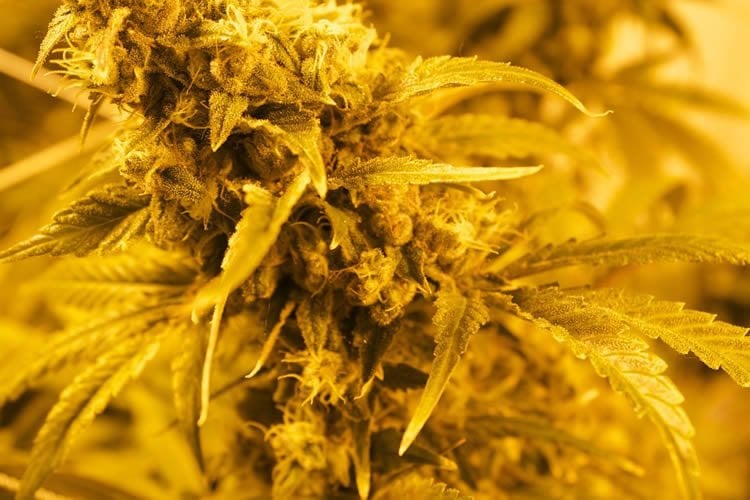Summary: Cannabidiol could help cut seizures by half in children and adults with Lennox-Gastaut syndrome, an extremely severe form of epilepsy, researchers report.
Source: AAN.
Taking cannabidiol may cut seizures in half for some children and adults with Lennox-Gastaut syndrome (LGS), a severe form of epilepsy, according to new information released today from a large scale controlled clinical study that will be presented at the American Academy of Neurology’s 69th Annual Meeting in Boston, April 22 to 28, 2017. Cannabidiol is a molecule from the cannabis plant that does not have the psychoactive properties that create a “high.”
Nearly 40 percent of people with LGS, which starts in childhood, had at least a 50 percent reduction in drop seizures when taking a liquid form of cannabidiol compared to 15 percent taking a placebo.
When someone has a drop seizure, their muscle tone changes, causing them to collapse. Children and adults with LGS have multiple kinds of seizures, including drop seizures and tonic-clonic seizures, which involve loss of consciousness and full-body convulsions. The seizures are hard to control and usually do not respond well to medications. Intellectual development is usually impaired in people with LGS.
Although the drop seizures of LGS are often very brief, they frequently lead to injury and trips to the hospital emergency room, so any reduction in drop seizure frequency is a benefit.
“Our study found that cannabidiol shows great promise in that it may reduce seizures that are otherwise difficult to control,” said study author Anup Patel, MD, of Nationwide Children’s Hospital and The Ohio State University College of Medicine in Columbus and a member of the American Academy of Neurology.
For the randomized, double-blind, placebo-controlled study, researchers followed 225 people with an average age of 16 for 14 weeks. The participants had an average of 85 drop seizures per month, had already tried an average of six epilepsy drugs that did not work for them and were taking an average of three epilepsy drugs during the study.
Participants were given either a higher dose of 20 mg/kg daily cannabidiol, a lower dose of 10 mg/kg daily cannabidiol or placebo as an add-on to their current medications for 14 weeks.
Those taking the higher dose had a 42 percent reduction in drop seizures overall, and for 40 percent, their seizures were reduced by half or more.
Those taking the lower dose had a 37 percent reduction in drop seizures overall, and for 36 percent, seizures were reduced by half or more.
Those taking the placebo had a 17 percent reduction in drop seizures, and for 15 percent, seizures were reduced by half or more.
There were side effects for 94 percent of those taking the higher dose, 84 percent of those taking the lower dose and 72 percent of those taking placebo, but most side effects were reported as mild to moderate. The two most common were decreased appetite and sleepiness.

Those receiving cannabidiol were up to 2.6 times more likely to say their overall condition had improved than those receiving the placebo, with up to 66 percent reporting improvement compared to 44 percent of those receiving the placebo.
“Our results suggest that cannabidiol may be effective for those with Lennox-Gastaut syndrome in treating drop seizures,” said Patel. “This is important because this kind of epilepsy is incredibly difficult to treat. While there were more side effects for those taking cannabidiol, they were mostly well-tolerated. I believe that it may become an important new treatment option for these patients.”
There is currently a plan to submit a New Drug Application to the FDA later this year.
Funding: The study was supported by GW Pharmaceuticals, developer of cannabidiol. In the United States, GW operates as Greenwich Biosciences Inc.
Source: Renee Tessman – AAN
Image Source: NeuroscienceNews.com image is in the public domain.
Original Research: The study will be presented at 2017 American Academy of Neurology Annual Meeting in Boston between April 22 – 28, 2017.
[cbtabs][cbtab title=”MLA”]AAN “Cannabis Based Medicine May Cut Seizures in Half For Those With Hard to Treat Epilepsy: Brain Views Immoral Acts As If They Are Impossible.” NeuroscienceNews. NeuroscienceNews, 19 April 2017.
<https://neurosciencenews.com/cannabidiol-epilepsy-6441/>.[/cbtab][cbtab title=”APA”]AAN (2017, April 19). Cannabis Based Medicine May Cut Seizures in Half For Those With Hard to Treat Epilepsy: Brain Views Immoral Acts As If They Are Impossible. NeuroscienceNew. Retrieved April 19, 2017 from https://neurosciencenews.com/cannabidiol-epilepsy-6441/[/cbtab][cbtab title=”Chicago”]AAN “Cannabis Based Medicine May Cut Seizures in Half For Those With Hard to Treat Epilepsy: Brain Views Immoral Acts As If They Are Impossible.” https://neurosciencenews.com/cannabidiol-epilepsy-6441/ (accessed April 19, 2017).[/cbtab][/cbtabs]






